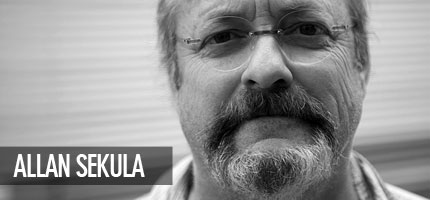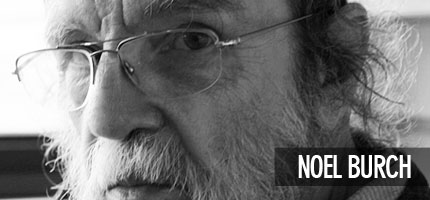
About the Directors
Allan Sekula and Noel Burch
Allan Sekula
Photographer, Film Maker

Since the early 1970s, Allan Sekula’s (Erie, Pennsylvania 1951) works with photographic sequences, written texts, slide shows and sound recordings have traveled a path close to cinema, sometimes referring to specific films. However, with the exception of a few video works from the early 70s and early 80s, he has stayed away from the moving image. This changed in 2001, with the first work that Sekula was willing to call a film, Tsukiji, a “city symphony” set in Tokyo’s giant fish market.
Sekula’s books include Photography against the Grain (1984), Fish Story (1995), Dismal Science (1999), Performance under Working Conditions (2003), Titanic’s Wake (2003), and Polonia and Other Fables (2009).
These works range from the theory and history of photography to studies of family life in the grip of the military industrial complex, and in Fish Story, to explorations of the world maritime economy. The Forgotten Space is a filmic sequel to Fish Story.
Noel Burch
Film Maker, Author

Born in the USA (San Francisco) in 1932, Noël Burch has been living in France since 1951. He graduated from the Institut Des Hautes Etudes Cinèmatographiques in 1954. While primarily known for his theoretical writings, he has always positioned himself as a filmmaker and has directed over twenty titles, mostly documentaries.
Burch has been publishing since the 1960s. Among his numerous publications are his first and best known book Theory of Film Practice (New York: Praeger, 1973) and To the Distant Observer: Form and Meaning in Japanese Cinema (Berkeley, 1979), which remains the most robust history of Japanese cinema written by a Westerner.
From 1967 to 1972, he collaborated with Janine Bazin and Andrè S. Labarthe for the celebrated series, Cinèastes de Notre Temps, and directed seven programs which are considered to have renewed the “film-maker portrait” in the heroic years of French public television. It was during that same period that Burch was co-founder and director of the Institut de Formation Cinèmatographique, an alternative film school associating theory and practice.










